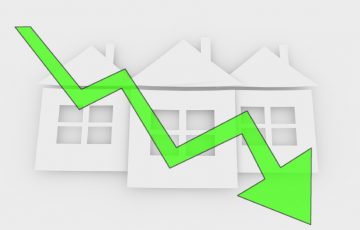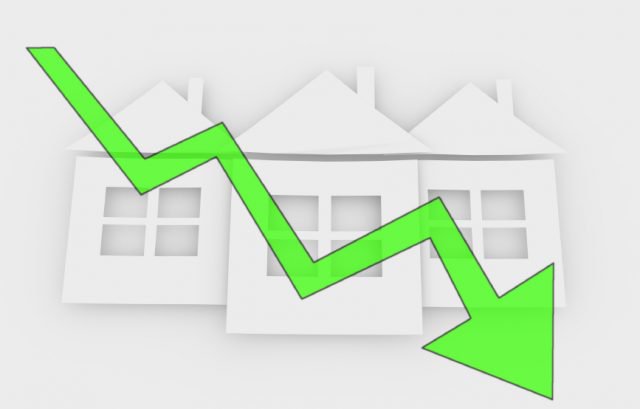Mortgage Lending Drops to 12-Month Low Ahead of EU Referendum
A further decline in mortgage lending in May, ahead of this month’s EU referendum, marks as 12-month low in house purchase lending, according to the latest Mortgage Monitor from e.surv chartered surveyors.
Some 65,113 mortgages were approved in May, down by 1.7% from 66,250 the previous month. This is the lowest monthly figure since May last year and marks a 12-month low in lending levels.
The decrease follows monthly falls recorded in April, of 5.8%, and March, of 3%, meaning lending has dropped by 10.5% over the past three months, as political uncertainty ahead of the EU referendum causes caution amongst lenders and borrowers.
The recent declines highlight a sharp reversal of the record lending levels seen at the start of the year. January and February both recorded strong levels of mortgage approvals, at 73,060 and 72,512 respectively, as buy-to-let landlords and second homebuyers rushed to complete on property purchases ahead of the introduction of the 3% Stamp Duty surcharge on 1st April.

Mortgage Lending Drops to 12-Month Low Ahead of EU Referendum
Now, the lending market appears to be settling back into its usual rhythm. However, e.surv also reports that on an annual basis, mortgage lending rose slightly in May, by 0.8%.
Despite this, the proportion of small-deposit lending dropped marginally in May, accounting for 18.4% of total home lending – down from 19.1% the previous month. Meanwhile, lending to large-deposit buyers (those with a deposit of 60% or more), picked up significantly, making up around a third (30.7%) of all lending.
The Director of e.surv, Richard Sexton, comments on the data: “Lenders may need to navigate choppier waters over the next couple of months, but for now, the mortgage market remains on an even keel. Homebuyers have more options than ever, as lenders work to expand their range of mortgage options further. New mortgages with longer repayment terms and innovative intergenerational mortgages are offering financial buoyancy aids for buyers.
“But the EU referendum is causing some nervousness within financial circles and bringing new unknowns with it. This political milestone could impact the UK’s economic outlook, and slowing growth could pose problems of its own for both lenders and borrowers. Juggling these challenges will be key to maintaining the current health of the mortgage market, and lenders should brace themselves for possible surprises.”
He continues: “Faced with this uncertainty, it’s perhaps no surprise that home lending levels are falling slightly. The result is a slight tail-off mid-year, as homebuyers pause for thought and lenders are gifted more time to investigate the potential of offering additional mortgage choices. A lull in buy-to-let lending following April’s Stamp Duty changes has also added to this calming in the market.”
Although a drop in the proportion of small-deposit lending was recorded, the latest First Time Buyer Tracker from estate agents Your Move and Reeds Rains found that first time buyer transactions hit a two-year high in April, with 32,300 completions. This was a huge 14.9% higher on a monthly basis.
Meanwhile, large-deposit lending rose slightly annually, from 28.2% in May last year to 30.7% this year.
Sexton states: “First time buyers may be feeling more positive as new mortgage options flood the market, but more still needs to be done to ensure small-deposit lending stays a priority. Given the demands of saving for a deposit, high loan-to-value (LTV) lending continues to be crucial to helping aspiring buyers onto the ladder. Low inflation and rising wages can only do so much to combat climbing deposit demands. Meanwhile, some first time buyer schemes, like Help to Buy 2, are due to be phased out at the end of the year. This could curb first time activity if it means the improvements made to support first timers start to fall away.
“Competition for properties has been temporarily eased by the Government’s interventions in the private rental sector, which means first timers aren’t having to fight for properties with landlords in the same way that they were. But managing demand isn’t a sustainable way to control the property market over the long-term.”
He concludes: “The real solution is to solve the supply shortfall haunting the property market. There’s always talk about new homes, but across the country, homebuyers – especially first timers – need action not words. An increase in available homes would help affordability and inject a new energy into the property market, relieving some of the pressure on prospective homebuyers. Without an injection of supply, property prices and deposit requirements will continue to climb, leaving the market even more reliant on the high-LTV sector.”








